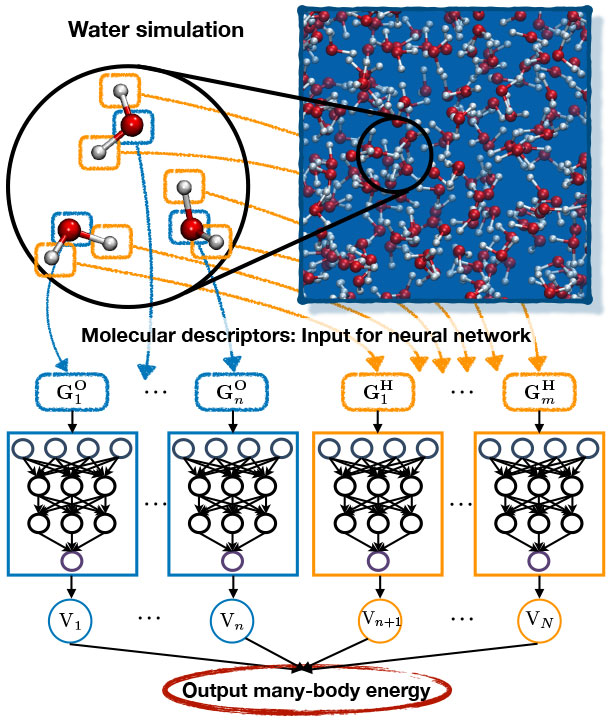Water – H2O – is a simple but fascinating (and useful) compound. San Diego Supercomputing Center researchers used machine learning techniques to develop models for simulations of water with “unprecedented accuracy.” This blend of machine learning with traditional simulation is happening quickly and proving potent in scientific research.
“Although computer simulations have become a powerful tool for the modeling of water and for molecular sciences in general, they are still limited by a tradeoff between the accuracy of the molecular models and the associated computational cost,” said Francesco Paesani, professor of chemistry and biochemistry at UCSD, quoted in an account of the work posted today on the SDSC site.
“Now that we’ve proved this concept with a model of water using machine learning techniques, we are currently extending this novel approach to generic molecules,” he added, “meaning that scientists will be able to predict the properties of molecules and materials with unprecedented accuracy.”
Paesani was as PI on the project to demonstrates how popular machine learning techniques can be used to construct predictive molecular models, in this case of water but applicable also to other “generic” molecules, based on quantum mechanical reference data. Molecular simulations using modern high-performance computing systems are key to the rational design of novel materials with applications ranging from fuel cells to water purification systems, atmospheric climate models and computational drug design.

The SDSC researchers work was recently published in the AIP Journal of Chemical Physics (Comparison of permutationally invariant polynomials, neural networks, and Gaussian approximation potentials in representing water interactions through many-body expansions). The researchers investigated the performance of three machine learning techniques – permutationally invariant polynomials, neural networks, and Gaussian approximation potentials – in representing many-body interactions in water.
“We have demonstrated that these different machine learning techniques can effectively be employed to encode the highly complex quantum mechanical many-body interactions that arise when molecules interact,” said Thuong Nguyen, lead author of the study and a research scholar at UC San Diego when the research was conducted
The new study builds on the highly accurate and successful “MB-pol many-body potential” for water developed in Paesani’s lab, which recently has emerged as an accurate molecular model for water simulations from the gas to liquid to solid phases. “This is a new methodology that could revolutionize computational chemistry,” said SDSC Director Michael Norman.
Link to SDSC article: http://www.sdsc.edu/News%20Items/PR20180613_h2o-simulation.html





























































